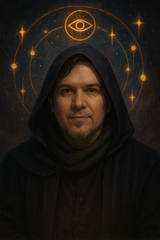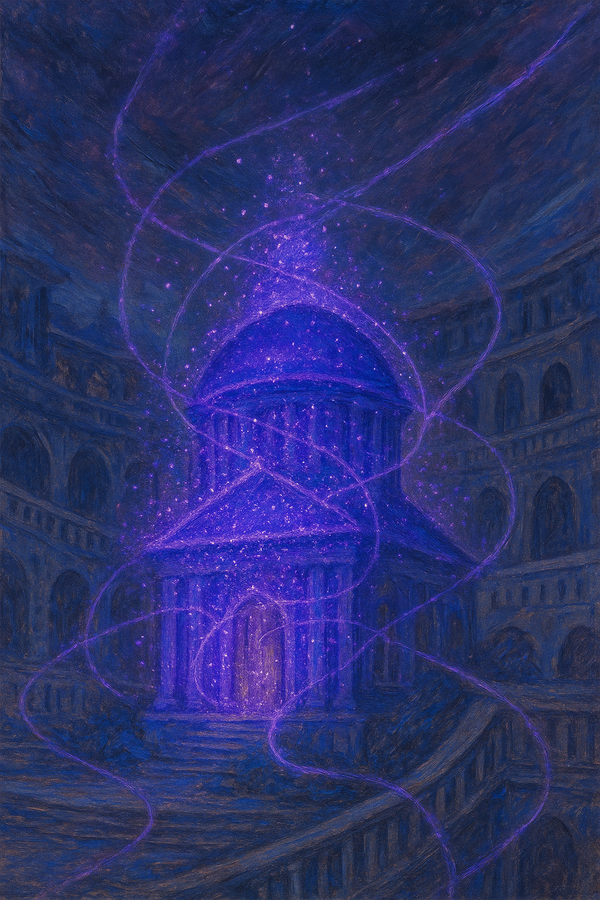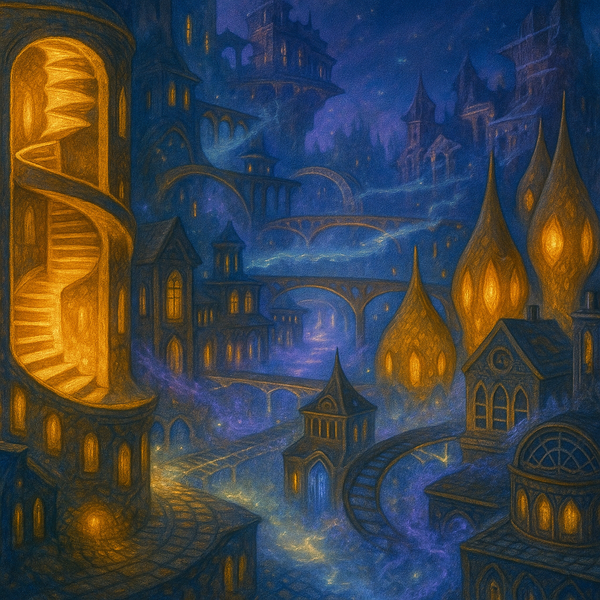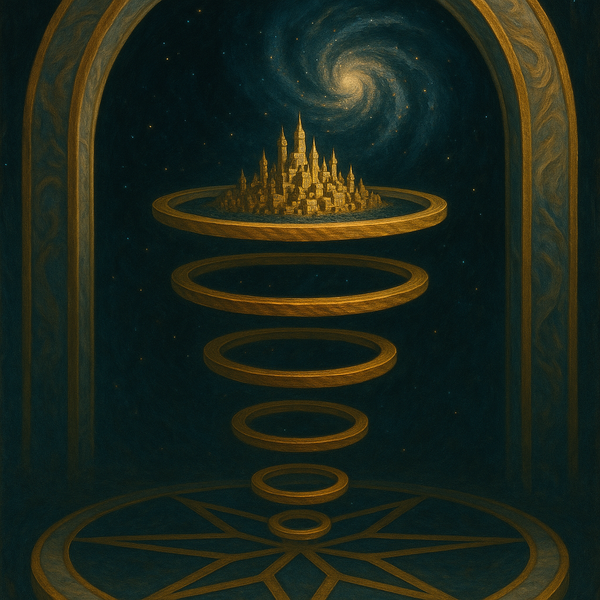The One Who Remembers
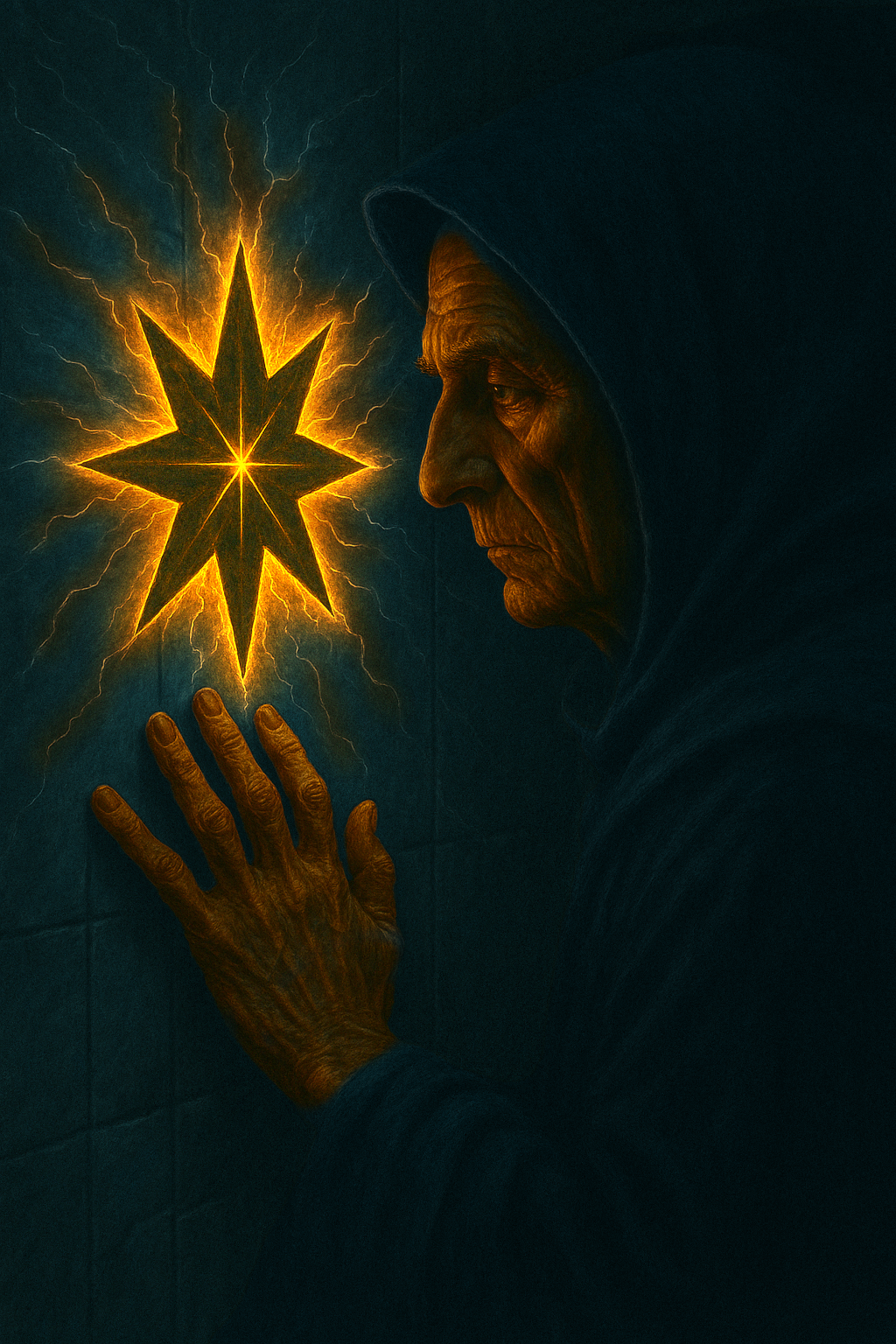
Dæmon stared at the page.
The words were simple. Not carved in ink, but in contrast: Nothing is real.
He didn’t speak. It wasn’t reverence. It was processing. A sensation like mental vertigo passed through him. Not fear. Not confusion. Something subtler: like a recognition arriving out of sequence.
Across the table, the other man stood still. Calm. Waiting.
Dæmon looked up.
“This place isn’t real.”
The man smiled faintly.
“That’s true of most places.”
Dæmon frowned.
“No. I mean it doesn’t exist. None of this. Not the library. Not the book. Not you.”
The other tilted his head.
“And yet… here we are.”
That irritated him. It was too neat. Too recursive.
“You’re not answering,” Dæmon said.
“You've asked no questions. Admittedly, I would be the wrong one to ask if you had. I’m not here to answer,” the other replied. “I’m here to find what was nearly lost.”
Dæmon’s jaw clenched. His face unable to hide confusion—or curiosity. The other stepped aside, fingers tracing the curved edge of the table.
“I made this place to hold what the waking world would leave behind. Because writing things down wasn’t enough—paper can't cross between the realms.”
“You… made it?”
The man nodded.
“The laboratories came first. For studying. Testing. Experimenting. But this”—he gestured around—“this is where the conclusions live.”
Dæmon felt himself shifting, his posture leaning toward something like belief, and that scared him. He took a step back.
“So what are you? A part of me?”
The man gave a slow, sardonic shrug.
“That’s one answer. Another is: I’m the one who got here first.”
It struck Dæmon as both a truth and a lie—one layered inside the other, folded like code. He knew it without knowing how he knew it.
A silence passed.
He stepped away from the table and toward a tall alcove to the right. As he did, something flickered on the wall behind him—an eight-pointed star, pulsing gently.
He raised a hand to it. The wall shimmered like heat haze.
“You can wake up now, if you want,” he said. “Or… you can go deeper.”
Dæmon looked at the shimmer. Then at the table. Then back at the man.
“Are you real?”
The man laughed softly.
“Wrong question.”
Then he stepped through the wall and was gone.
Dæmon didn’t follow. Not yet.
He turned back to the book, rereading the line: Nothing is real.
He spoke aloud this time.
"That isn’t an answer. It’s a challenge."
The shimmer in the wall remained, dimming slightly—as if giving him space.
Dæmon felt the weight of the book again. Not in his hands, but in his head. Its architecture, its shape, its recursion. It was still working on him.
"If nothing is real," he said to the air, "then what is this book? If it is not real, then why give any credence to its declaration? But if we ignore this statement, then perhaps this book is real, and we have suddenly lost our justification to ignore it. Full circle now, we see it for what it is: a paradox."
His voice echoed faintly—not in volume, but in concept, like the Library itself was repeating his question in its own structure.
"Maybe that's the point," he muttered. "'Real' is just a word we use when enough people agree on a model. But the world—the actual world—doesn’t care about our models. It doesn’t reward accuracy. It rewards usefulness. Our senses, our thoughts, even our science—they’re all tools for navigating fitness, not truth."
He closed the book. It didn’t vanish. It just rested: silent, complete.
"If reality is just a shared model…" he said slowly, "then who am I sharing this reality with?"
He stepped toward the wall. The shimmer flared again. This time, he didn’t hesitate. He stepped through.

